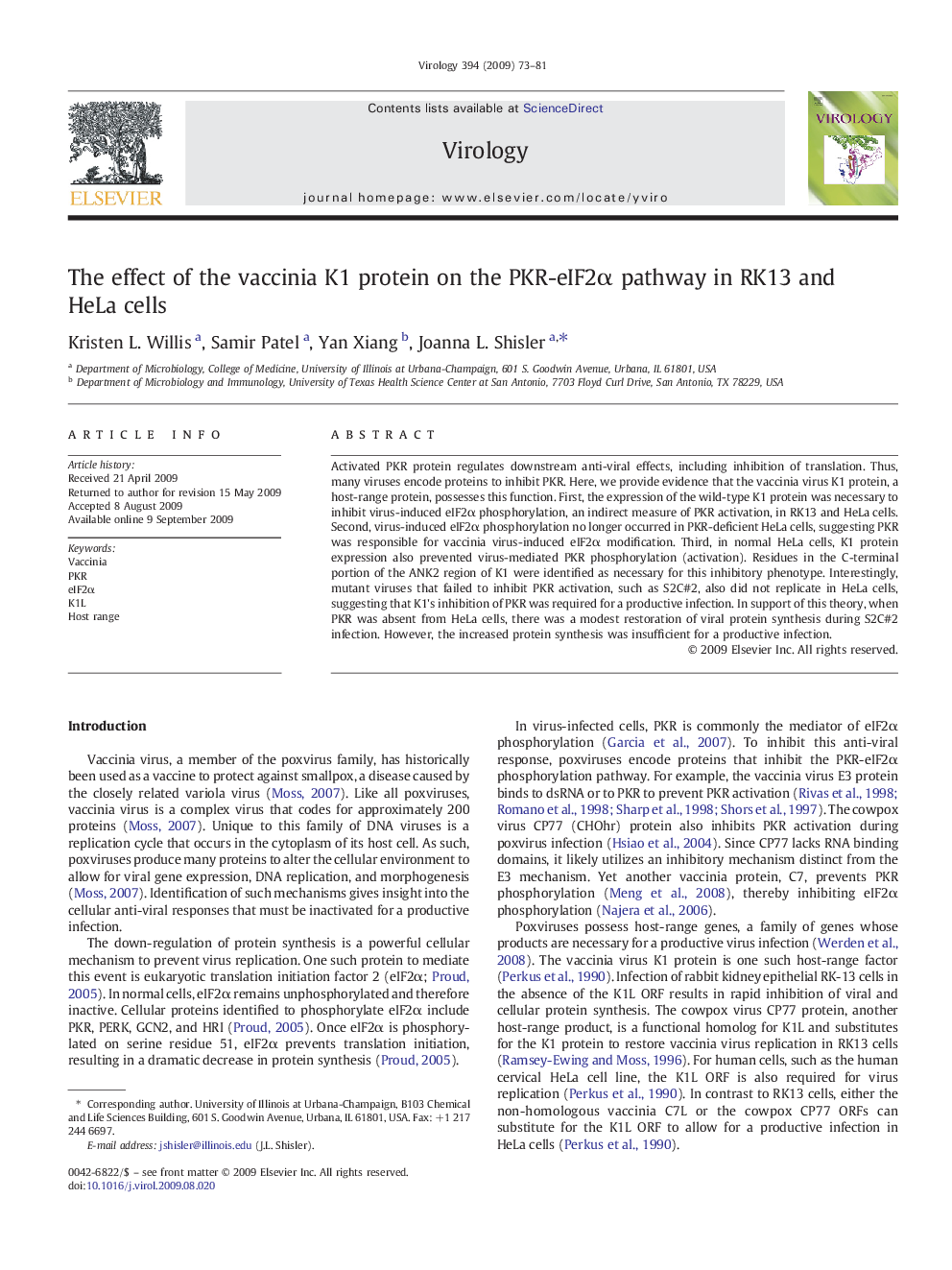| Article ID | Journal | Published Year | Pages | File Type |
|---|---|---|---|---|
| 6141787 | Virology | 2009 | 9 Pages |
Abstract
Activated PKR protein regulates downstream anti-viral effects, including inhibition of translation. Thus, many viruses encode proteins to inhibit PKR. Here, we provide evidence that the vaccinia virus K1 protein, a host-range protein, possesses this function. First, the expression of the wild-type K1 protein was necessary to inhibit virus-induced eIF2α phosphorylation, an indirect measure of PKR activation, in RK13 and HeLa cells. Second, virus-induced eIF2α phosphorylation no longer occurred in PKR-deficient HeLa cells, suggesting PKR was responsible for vaccinia virus-induced eIF2α modification. Third, in normal HeLa cells, K1 protein expression also prevented virus-mediated PKR phosphorylation (activation). Residues in the C-terminal portion of the ANK2 region of K1 were identified as necessary for this inhibitory phenotype. Interestingly, mutant viruses that failed to inhibit PKR activation, such as S2C#2, also did not replicate in HeLa cells, suggesting that K1's inhibition of PKR was required for a productive infection. In support of this theory, when PKR was absent from HeLa cells, there was a modest restoration of viral protein synthesis during S2C#2 infection. However, the increased protein synthesis was insufficient for a productive infection.
Keywords
Related Topics
Life Sciences
Immunology and Microbiology
Virology
Authors
Kristen L. Willis, Samir Patel, Yan Xiang, Joanna L. Shisler,
